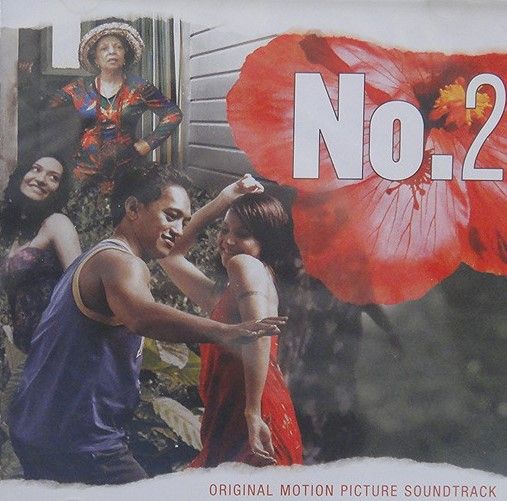Naming Number Two is the directorial debut of Toa Fraser who hails from New Zealand. I haven't seen the film but I do have the soundtrack from Hacktone Records. It's a rather daunting task to write about the music of that part of the world since I am totally unfamiliar with it. But try I must.
The album features tracks new & old by various artists interspersed with incidental music from the film by composer Don McGlashan. With the movie dealing with intergenerational conflicts, the soundtrack runs the gamut from rap to the classical repertoire with several tunes being flavored by the Pacific Rim. It makes for quite an eclectic mix.
Rap music has spread across the Pacific as evidenced by the lead track here, "The Medicine" by Tha Feelstyle who hails from Somoa by way of NZ. There isn't anything here to betray the homeland of the singer as the song sounds as American as anything you're likely to hear on this side of the ocean. The same goes for "Bathe in the River" by Mt. Raskil Preservation Society which also featured the silky smooth voice of soul singer Hollie Smith. Māori-Niuean hip-hop artist Che Fu contributes a couple songs and the mid-tempo "Waka" is the best with its sampled ethnic percussion which ensures that it doesn't sound overly American.
McGlashan's contributions here are short and obviously served their purposes in the film. "Nanna's Entrance" and "Mt. Roskill/Chasing the Pig" are largely orchestral while the aching dobro on "Early Morning" does a wonderful job of capturing the song's title. "Sai Levuka Ga" has some lovely guitar work and shimmering vocals which make a smooth transition to music hall with the addition of horns.
The best songs here, though, are the ones that don't sound like they originate from the States. "Wai Ni Bu Ni Ovalau" by the Fijian Festival Performers is a vocal tour de force for the large chorus. I have no idea what the lyrics mean but the song is absolutely beautiful. "Chulu Chululu" dates back to the mid-1960s and is by Mila with Eddie Lund and his Tahitians. How much it has to do with Tahitian music is unknown since it sounds fairly Anglicized to my ears but it has a tasty pedal steel break and is just blatantly catchy.
As I said above, my favorite tracks are the ones that sound the most exotic, for want of a better word. The songs that have at least some kind of inflection from cultures across the ocean fare the best to my ears. While you'd think that I'd be used to it by now, I still found myself amazed at how far American music has spread. The rap songs here were the most difficult but, after repeated listenings, even I, a bit of a purist and not a big fan of the genre, grew to like them. Still, they proved the most problematic as they sounded assembled instead of performed and, perhaps worst of all, they sounded American instead of Polynesian. And this makes me want to see the movie because I suspect that, not only is the tension between young and old present, but also that of traditional Pacific Rim cultures vs. Western and those tensions interest me greatly.

No comments:
Post a Comment